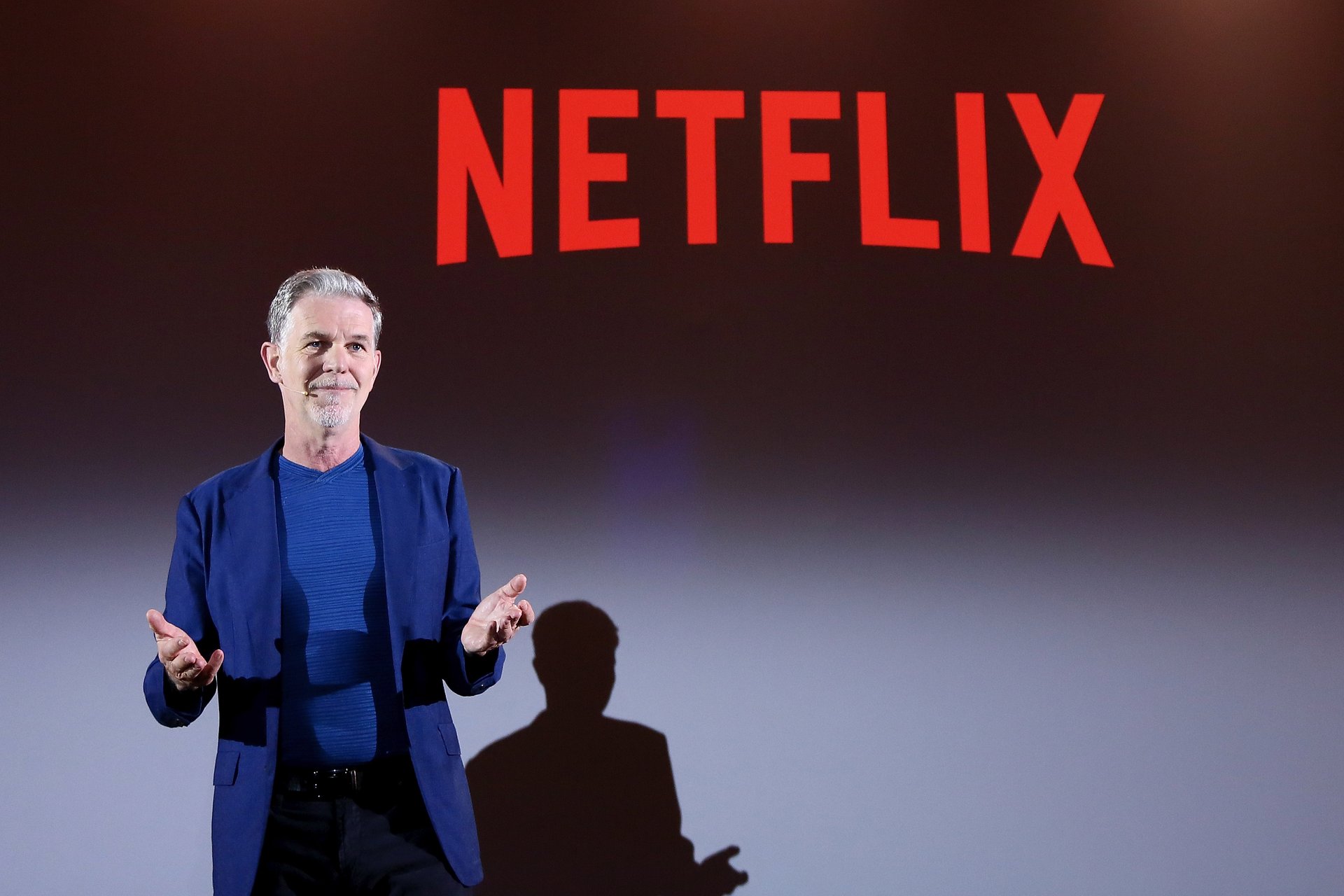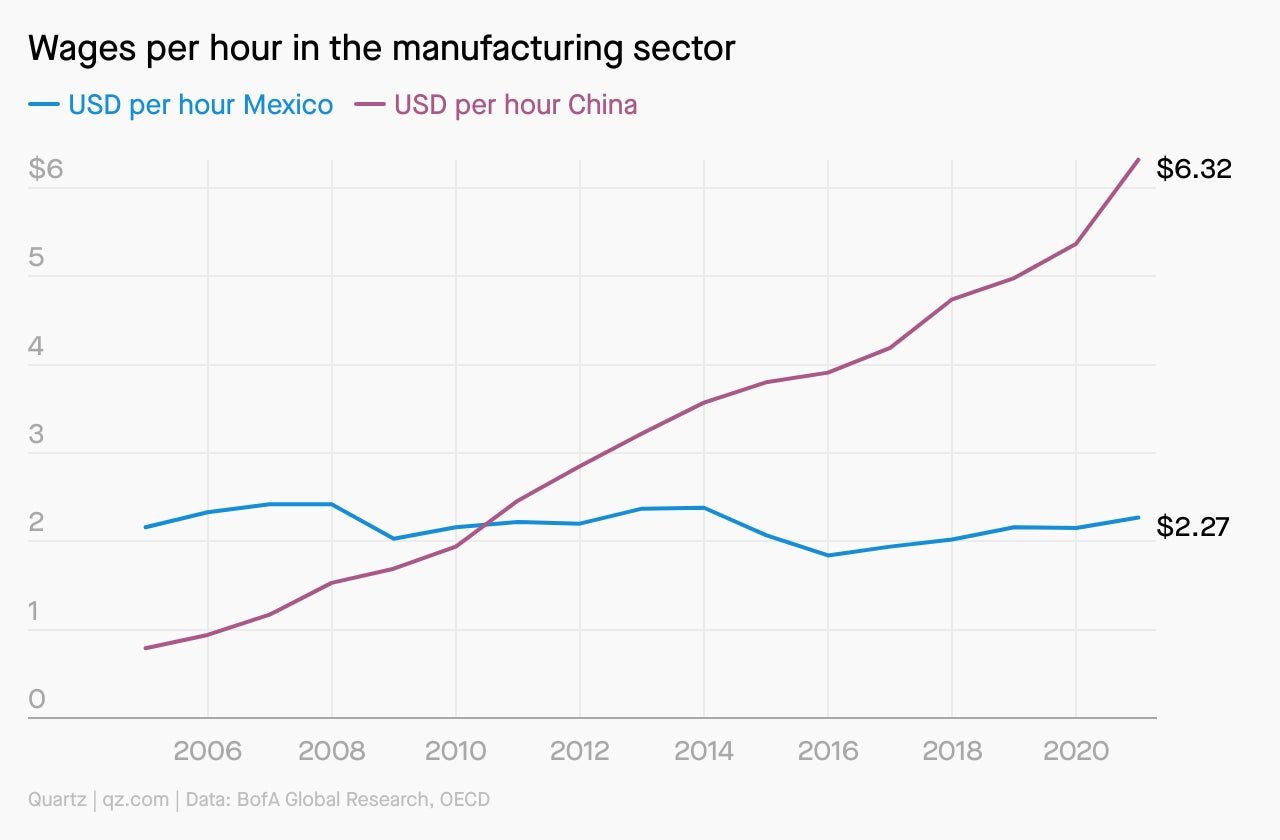🌍 Netflix adds ads
Plus: Truce in Tigray

Good morning, Quartz readers!
Here’s what you need to know
Ethiopia’s government and Tigray forces agreed on a truce. Peace talks have ended a two-year war that has killed thousands and displaced millions.
Russia is back on board the grain deal. It rejoins the UN-brokered agreement to allow for the export of Ukraine grain through the Black Sea corridor following diplomatic efforts.
Ithaca Energy is set to debut on the London Stock Exchange. It plans to go public next week and could be valued at as much as £3.1 billion ($3.56 billion) in what could be the exchange’s largest IPO in 2022.
Germany will charge plastic makers to fund litter cleaning. The plan, which will roll out in 2025, is expected to collect €450 million ($446 million) in the first year.
China put a major industrial park under a weeklong covid lockdown. One of the factories affected is the world’s biggest iPhone plant, operated by Apple supplier Foxconn.
UK prime minister Rishi Sunak is going to COP27 after all. His “screeching U-turn” has taken place as the UN reports Europe has been getting hotter at two times the global average.
Wish you could go too? Sign up for our newsletter, Need to Know: COP27, and get updates straight to your inbox to keep up with the world’s biggest climate summit, which kicks off this Sunday (Nov. 6).
What to watch for
It’s finally happening—Netflix is resorting to ad sales. The streaming service launches its advertising-supported tier today. At $7 a month in the US, and even less in some countries, the budget service is about on par with the ad-supported plans of streaming rivals Disney+, Hulu, and HBO Max.
Co-CEO Reed Hastings has long pledged to avoid ads. But a falling stock price and subscriber losses have forced the company to rethink its strategy. Netflix’s stock price was down 66% in June from its peak in 2021, even though Quartz’s Tiffany Ap handed them a golden idea—team up with Peloton!—back in May.
If you’re willing to suffer through commercials for a lower price, just know you won’t be able to download content and, due to what Netflix describes as licensing issues, some content will also be unavailable. Which shows? It’s not clear at time of writing. But if it’s The Great British Bake Off, we’ll be sticking with the ad-free tier, thank you very much.
To manufacturers, Mexico is the new China
The disparity in manufacturing wages between Mexico and China is starker than ever.

With fewer people in its labor market as a result of Beijing’s decades-long one-child policy, China’s wages have been rising. Low wages have long attracted businesses to open factories in Mexico, and the pandemic may have accelerated this trend as it pushed up labor costs along the supply chain.
But it’s not just a matter of wages. The availability of qualified labor and geographic proximity to the US also works in Mexico’s favor, as does the broader interest among companies in diversifying their sources in order to reduce supply chain risks.
Every crisis everywhere, all at once
Collins English Dictionary announced that its 2022 word of the year was “permacrisis,” an “extended period of instability and insecurity.” For the UK, where Collins is published, this certainly feels true about a time period marked by covid, inflation, Brexit, and let’s not forget a climate that’s on its way to becoming inhospitable for future generations.
Meanwhile, historian Adam Tooze has taken to calling the global economic situation a “polycrisis,” where a number of depressing factors have combined to create one big alarming supersituation. But is describing our tangle of crises this way actually useful?
✦ Grab a Quartz Membership (now on sale for 60% off!) and learn more about the value of these kinds of terms in the next edition of the Weekend Brief.
Quartz’s most popular
😮💨 Elon Musk is negotiating his new Twitter fees with Stephen King in real time
Surprising discoveries
A new recipe for fresh pasta can double the product’s shelf life. A change in the package’s atmosphere and the addition of good bacteria to the dough can keep the goods fresh for 120 days.
The days of the fax machine are numbered. A UK communications regulator is deciding if fax is a wrap.
The size of rhino horns has shrunk in the past century. Poachers targeting the pachyderms with the biggest outgrowth may have had something to do with it.
Two “planet killer”-sized asteroids were found lurking behind the sun. Luckily, neither are expected to pose a threat to the Earth.
The world has been robbed of the song “Inflation” for nearly 50 years. NPR’s Planet Money discovered the economically topical tune, and created a record label to assist singer Earnest Jackson in finally getting it out. We are here to help.
Our best wishes for a productive day. Send any news, comments, hidden economic song gems, and old fax machine uses to [email protected]. Reader support makes Quartz available to all—become a member. Today’s Daily Brief was brought to you by Sofia Lotto Persio, Adario Strange, Michelle Cheng, Julia Malleck, and Susan Howson.